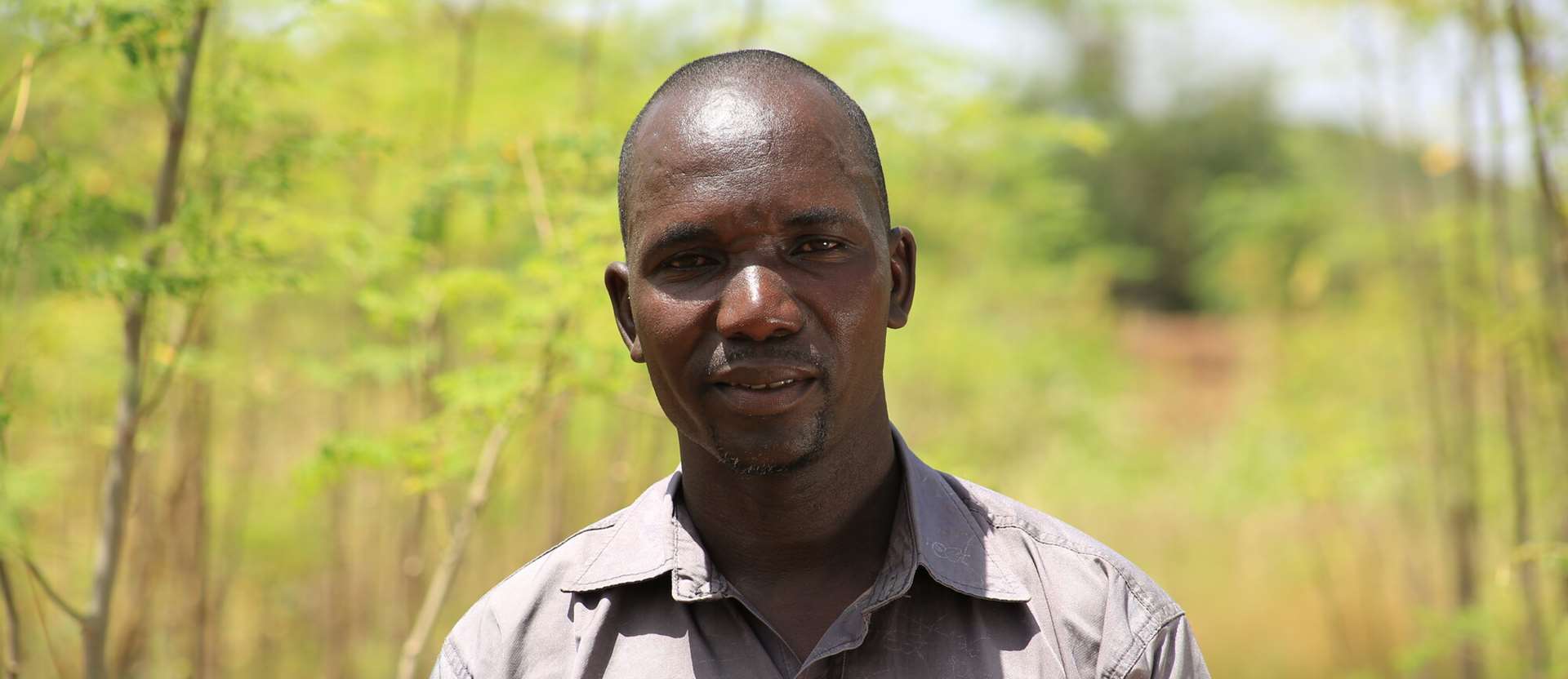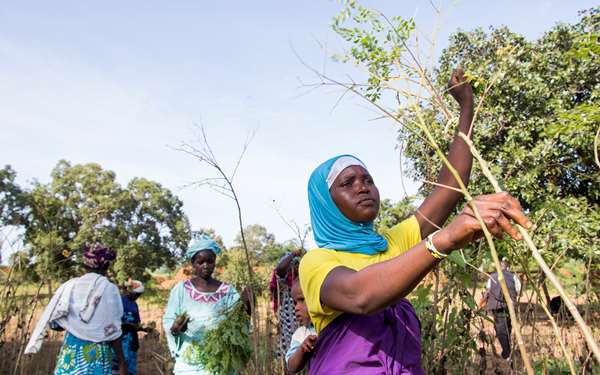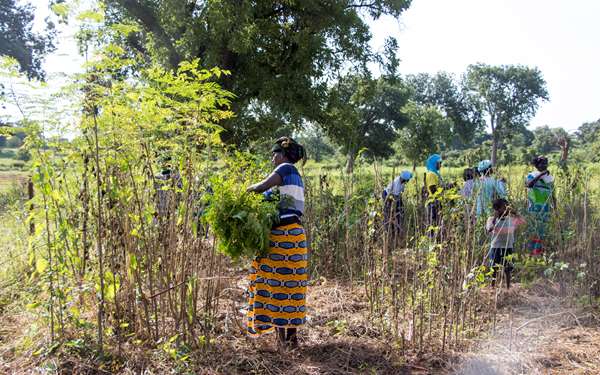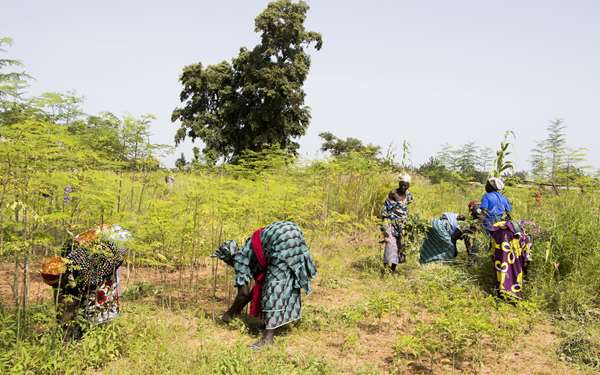
Moumouni's story
Growing communities on the frontlines of the climate crisis
“The change was quick, and it is the act of mankind,” Moumouni Sawadogo observes about the climate crisis.
As a farmer and livestock breeder in his 40s living in rural Burkina Faso, Moumouni has seen his local environment change more than most across his lifetime. From a landscape of vegetation, forest, grasses and wildlife, he now observes a bare land, where “the wild animals have moved away to remote places.”
An increasingly erratic climate means Moumouni has had to adapt his way of life. Farming has become a more unpredictable profession, and people must travel further to source raw materials, like straw for the roofs of their houses.
Deforestation is an unfortunate consequence of poverty in the drylands of Africa, due to changing farming practices and the necessity of firewood for cooking. This, combined with the climate crisis, has led to drastic land degradation, making life difficult for farmers like Moumouni.


Growing solutions for growing problems
In short, the climate crisis is impacting every element of people’s lives across Africa’s Sahel, whilst rising poverty and unpredictable harvests contribute to a vicious cycle, causing malnutrition and land degradation.
In light of these urgent and interconnected crises, it is important that we make the most of solutions that address these problems in a joined-up way. Planting trees which feed people, restore land and produce commodities for sale, offers local people long-term solutions for climate adaptation.
Nutrition gardens - a 'nature based' solution!
Nutrition gardens are a great means of doing this, bringing small plots of communal nutritious trees into villages, for consumption and sale. This can help reduce the need for an ever-widening search for nutritious food and products to sell from the wild, improving workloads for local people, reducing pressure on remaining forests, and helping to improve dietary diversity.
Tree Aid nutrition gardens include trees like moringa, a miraculous tree, of which all parts are edible. This fast growing marvel is highly resistant to drought, and packed with essential nutrients.


A space to learn together
We met Moumouni as part of Tree Aid’s Growing Food and Incomes project in Burkina Faso. This project took a holistic approach to address the issues facing the community, working with local organisations to provide expert training for every stage of the project, from seed to market.
For example, Moumouni told us how he was taught that, “with baobab seeds, it takes a little acid or hot water to make the seeds germinate, and then you have to dig a little in the earth to make a mixture of earth, sand and manure before putting the seeds in the ground to help it grow.”
Moumouni was also part of a team which designed an environmental education programme for the rest of his community. In Moumouni’s words, the programme helped to ‘sensitize’ the village to the benefits of reforestation, and help address underlying causes of deforestation in the area.
Making an impact
Moumouni told us about the impact that he has seen for local people and their businesses since the planting of moringa and baobab in the local nutrition garden:
“Trees are really important for us because our families consume moringa and baobab. There are people who leave Ouagadougou [Burkina Faso’s capital] to come and buy moringa leaves here”
The benefits for both health and livelihoods that Moumouni cites are echoed in other participating communities across the region, as seen in our project evaluation report.
In total, there has been a 161% increase in average annual income over the project lifetime, and a 42% reduction in chronic malnutrition amongst children under 5 years of age! This fits a larger trend of an 8% reduction in number of households below the calorie line.


Growing knowledge & awareness:
We love the spirit of collaboration we have seen emerging in Korsimoro – it goes to show the value that training and skills development can bring to tree-growing projects, and the importance of projects which don’t just ‘plant trees and walk away’.
“We work together - there is social cohesion, mutual aid and unity between the members of the group. We are also a model for other associations, [who] come to the village to get inspired by our model."
This kind of shared learning is essential if we are to tackle the impacts of the climate crisis together.
Since the project began, we have been inspired to see the impact of the project extending far beyond a single community. Moumouni told us how nutrition gardens are now offering a means for people to come together from across the area to share knowledge.
